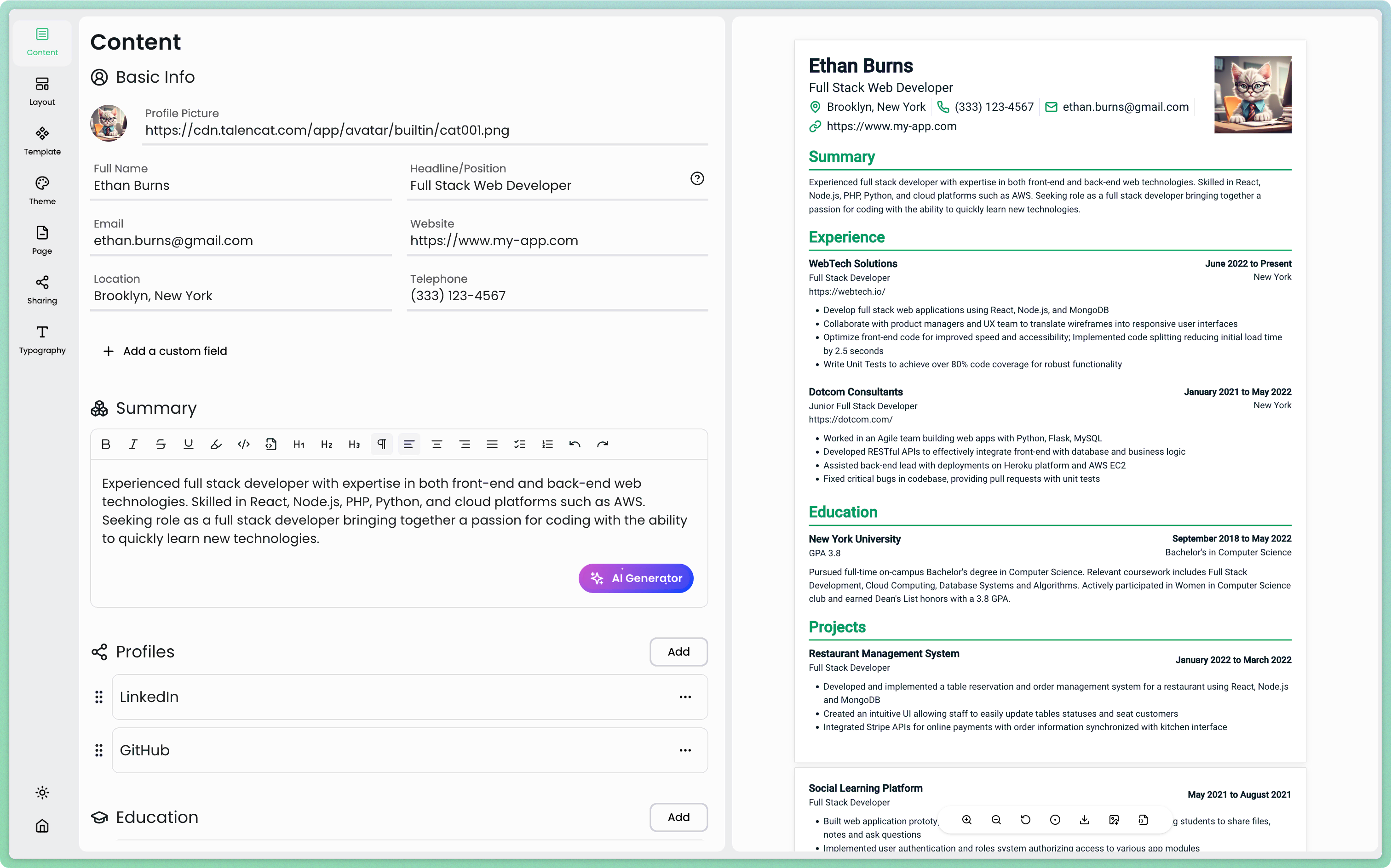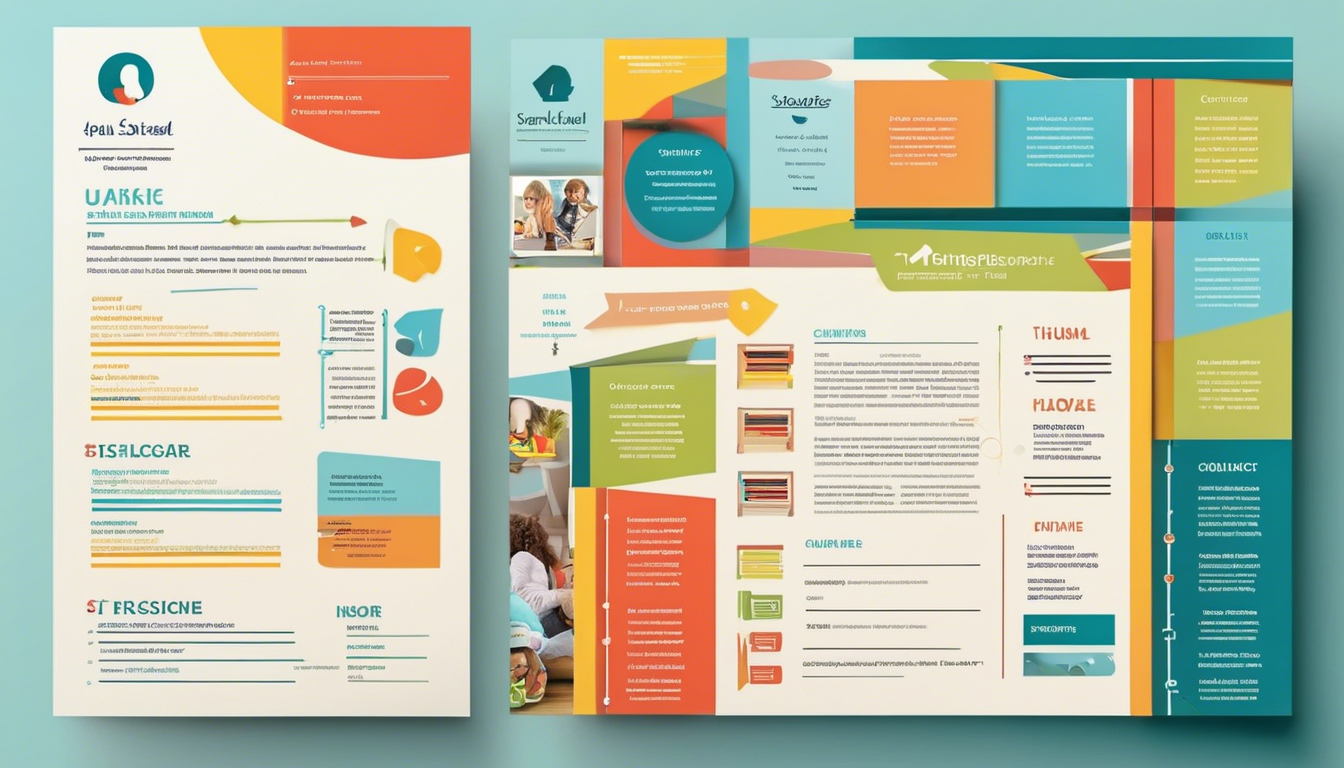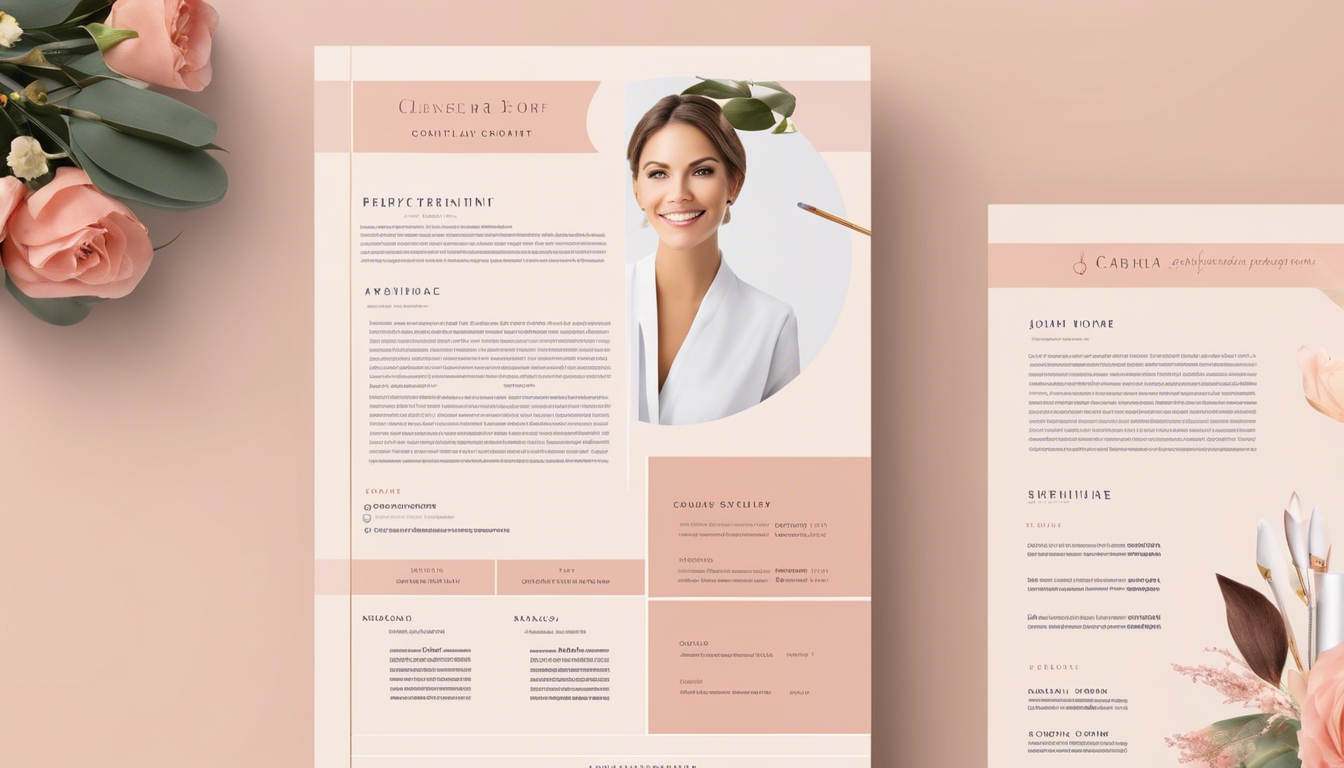A linguist's job involves the scientific study of language. When you apply for a linguist position, a good resume can make you stand out from your competitors.
In a linguist resume, the summary section is particularly important. A good summary can give your potential employer an excellent first impression. This article will tell you how to write an excellent summary section of a linguist resume through 50 examples.
What is A Linguist?
A linguist's job involves the scientific study of language, especially focusing on studying and analyzing how a language works. Linguists can conduct in-depth research on a single language, or they can focus on a particular language concept, such as syntax or history. Many linguists also work for editing services that offer assistance with details like sentence structure, grammar, and localization for written documents.

What Does A Linguist Do?
Here is a concise overview of what linguists typically do:
- Analyze language structure: Study phonetics, phonology, morphology, syntax, and semantics.
- Research language evolution and history.
- Document and preserve endangered languages.
- Study language acquisition and learning processes.
- Examine language variation and dialects.
- Develop and improve language teaching methods.
- Contribute to natural language processing and AI language technologies.
- Assist in translation and interpreting services.
- Consult on language policy and planning.
- Conduct fieldwork to gather language data.
An Overview of A Linguist Resume Summary
A linguist's resume should highlight their relevant skills, education, and experience in the field. When you are trying to build a linguist resume, the summary section of it is very important. The summary section of a linguist's resume, often called a professional summary or profile, should concisely highlight your most relevant qualifications and career objectives.

Here's how to approach writing it:
- Keep it brief: Aim for 3-5 strong sentences.
- Start with your professional identity: "Linguist with X years of experience in..."
- Highlight your specialization: Mention your main areas of expertise.
- Include key achievements: Briefly note significant accomplishments.
- Mention your most relevant skills: Focus on those most applicable to the job.
- Align with the job description: Tailor it to the position you're applying for.
- Use strong action verbs: Begin sentences with words like "Specialized," "Conducted," "Analyzed."
Here's an example:
"Linguist with 5 years of experience specializing in computational linguistics and natural language processing. Skilled in developing machine learning algorithms for language analysis and conducting large-scale corpus studies. Led a team that improved speech recognition accuracy by 15% for a major tech company. Proficient in Python, R, and various linguistic analysis tools. Seeking to leverage expertise in NLP to drive innovation in AI-powered language technologies."
Generate Linguist Resume Summary with TalenCat
TalenCat CV Maker is an AI-powered resume editor that allows you to generate a professional summary when you are trying to a linguist resume.
To generate a professional linguist resume summary, you can just click the "AI Generator" button in the "Summary" section when you build your linguist resume using TalenCat CV Maker.

Besides the summary section, it provides many built-in resume modules to maximize the customization of your linguist resume. In each module, you can use a generative AI to generate the appropriate content.
If you want to write an effective personal summary for your resume, TalenCat CV Maker is definitely the best option for you.
50 Examples of Linguist Resume Summary
If you need some references when you are going to write the linguist resume summary, here are 50+ examples of linguist resume summaries, covering various specializations and experience levels.
- Computational linguist with 8 years of experience in NLP and machine learning. Led development of a sentiment analysis tool achieving 94% accuracy across 7 languages. Designed and implemented a chatbot reducing customer service workload by 35%. Proficient in Python, TensorFlow, and BERT. Published 5 papers on low-resource language processing, cited over 200 times. Awarded "Best Paper" at ACL 2023 for work on multilingual named entity recognition.
- Sociolinguist specializing in language variation with 6 years of urban fieldwork experience. Conducted large-scale study on linguistic change in 10 major European cities, analyzing 15,000+ hours of recorded speech. Developed novel quantitative methods for tracking sound change, resulting in 3 highly-cited publications. Expert in ELAN, Praat, and R for linguistic data analysis. Recipient of NSF grant for innovative research on social media language variation.
- PhD in Applied Linguistics with 12 years of university teaching experience in second language acquisition. Designed curriculum for 20 courses from introductory to graduate level. Supervised 15 master's and 5 PhD theses. Created an adaptive learning platform improving student outcomes by 30%. Author of bestselling textbook "Modern Approaches to SLA" used in 50+ universities worldwide. Keynote speaker at 3 international TESOL conferences.
- Forensic linguist with 10 years of experience in author identification and legal linguistics. Consulted on 30+ criminal and civil cases, providing expert testimony in 8 high-profile trials. Developed proprietary authorship attribution software with 97% accuracy, adopted by 3 national law enforcement agencies. Published 2 books on linguistic evidence in legal settings. Regular trainer for FBI Linguistic Analysis Unit.
- Phonetician and speech scientist with 9 years of research experience in acoustic phonetics and speech technology. Expert in Praat, Python, and machine learning for speech analysis. Led team developing real-time accent modification software, improving non-native speakers' intelligibility by 40%. Published 10 peer-reviewed articles on prosody in emotional speech. Holds 2 patents for speech recognition algorithms.
- Historical linguist specializing in Sino-Tibetan languages with 20 years of field and research experience. Documented 4 endangered languages in remote areas of China and Nepal. Reconstructed proto-language phonology with 95% confidence using innovative computational methods. Author of seminal work "Sino-Tibetan Historical Phonology" cited in over 500 publications. Fluent in 8 modern and 3 ancient languages of the family.
- Psycholinguist focused on bilingual language processing with 15 years of research experience. Conducted groundbreaking studies on code-switching using EEG and fMRI, cited over 1000 times. Developed new paradigms for measuring language dominance in bilinguals. Principal investigator on $3M NIH grant studying cognitive benefits of bilingualism in aging populations. Published 30+ peer-reviewed articles and 2 books on bilingual cognition.
- Corpus linguist with 10 years of experience in big data analysis and corpus development. Created and manages the World English Corpus, containing 5 billion words from 100 countries. Developed custom concordancing software used by 200+ institutions worldwide. Expert in Python and SQL for large-scale text analysis. Consulted for major dictionary publishers, contributing to 5 new editions. Regular workshop leader at international corpus linguistics conferences.
- Semanticist specializing in formal semantics and pragmatics with 12 years of academic experience. Developed novel theories of quantification and presupposition, published in top journals including "Linguistics and Philosophy". Created popular online course "Introduction to Formal Semantics" with 50,000+ enrollments. Contributed to 2 major computational semantics projects improving natural language understanding in AI systems by 25%.
- Syntactician focused on minimalist theory with 18 years of research and teaching experience. Author of influential monograph "Phases and Cartography" cited in over 800 publications. Developed new analytical tools for cross-linguistic syntactic comparison used in 30+ universities. Supervised 10 PhD dissertations leading to tenure-track positions. Elected president of the International Association for Theoretical Linguistics.
- Endangered language specialist with 14 years of experience in language documentation and revitalization. Documented 7 critically endangered languages in Papua New Guinea and Australia. Developed successful language nest programs increasing child speakership by 200% in 3 communities. Created innovative mobile apps for language learning used by 10,000+ indigenous language learners. Recipient of UNESCO award for language preservation efforts.
- Computational morphologist with 11 years of experience in natural language processing. Developed state-of-the-art morphological analyzer achieving 98% accuracy for 20 morphologically complex languages. Created open-source toolkit for finite-state morphology used in 100+ NLP projects worldwide. Published 15 papers on machine learning approaches to morphological analysis. Regular invited speaker at ACL and EMNLP conferences.
- Discourse analyst specializing in political and media discourse with 16 years of experience. Conducted landmark studies on framing in climate change debates, cited in UN policy documents. Developed new methodologies for multimodal discourse analysis combining linguistic and visual data. Consulted for 3 national governments on communication strategies. Author of bestselling book "Language and Power in the Digital Age".
- Phonologist focusing on prosodic phonology with 13 years of research experience. Pioneered new theories of stress and intonation, published in "Phonology" and "Natural Language and Linguistic Theory". Developed computational models of phonological learning used in 5 major speech recognition systems. Led international research project on tone and intonation involving 20 languages and 30 researchers across 4 continents.
- Language acquisition researcher specializing in multilingual development with 10 years of experience. Conducted longitudinal studies of 500+ children acquiring 3 or more languages simultaneously. Developed standardized assessment tools for multilingual language development used in 20+ countries. Consulted for educational ministries in 5 countries on policies for multilingual education. Published 25 peer-reviewed articles and 3 books on childhood multilingualism.
- Lexicographer with 22 years of experience in dictionary compilation and corpus-based lexicography. Chief editor of "The Comprehensive Dictionary of World English" with 500,000 entries. Pioneered use of user-generated content in dictionary compilation, increasing neologism coverage by 40%. Developed AI-assisted definition writing system, improving efficiency by 30%. Regular keynote speaker at international lexicography conferences.
- Pragmatics specialist focusing on intercultural communication with 15 years of experience. Conducted extensive cross-cultural studies on politeness strategies in 15 countries. Developed training programs for multinational corporations, improving communication efficiency by 25% on average. Author of widely-used textbook "Pragmatics Across Cultures". Consulted for UN peacekeeping missions on intercultural communication strategies.
- Clinical linguist specializing in acquired language disorders with 20 years of experience. Developed novel assessment and treatment protocols for aphasia, improving recovery outcomes by 35%. Created and validated multilingual diagnostic tools for language disorders used in 30+ countries. Principal investigator on $5M NIH grant studying neural plasticity in language recovery. Published 40+ peer-reviewed articles and 3 clinical handbooks.
- Linguistic anthropologist studying language and identity with 17 years of fieldwork experience. Conducted long-term ethnographic studies in 5 indigenous communities across 3 continents. Developed new methodologies for studying language ideologies, adopted by researchers worldwide. Author of award-winning book "Voices of the Marginalized: Language and Power in Global Perspective". Curated major museum exhibition on language diversity viewed by 500,000+ visitors.
- Neurolinguist researching the neural bases of language with 14 years of experience. Pioneered use of combined EEG-fMRI techniques for studying real-time language processing. Led team discovering new brain regions involved in bilingual language control. Published 30+ high-impact papers in journals including "Nature Neuroscience". Developed open-source toolbox for neurolinguistic data analysis used by 5000+ researchers globally.
- Computational phonologist with 9 years of experience in speech recognition and synthesis. Developed accent adaptation algorithms improving speech recognition accuracy by 40% for non-native speakers. Created novel text-to-speech system capable of generating emotion-specific prosody with 90% human-like naturalness. Published 20 papers on machine learning approaches to phonological analysis. Holds 3 patents in speech technology.
- Typologist specializing in morphosyntactic diversity with 25 years of experience. Compiled the World Atlas of Morphosyntactic Parameters, covering 1000+ languages. Developed quantitative methods for measuring linguistic diversity, widely adopted in comparative linguistics. Author of seminal work "Principles of Linguistic Variation" cited in over 2000 publications. Led 10-year, multi-institution project on the limits of linguistic diversity.
- Language policy expert with 18 years of experience in educational and governmental settings. Developed national language education policies for 5 multilingual countries, impacting 50+ million students. Created assessment tools for measuring policy effectiveness, adopted by UNESCO. Authored influential report on digital language equality cited in EU policy documents. Regular consultant for World Bank on language and development projects.
- Linguistic ethnographer studying urban multilingualism with 12 years of field experience. Conducted large-scale studies of language use in 8 global cities, collecting 20,000+ hours of naturalistic data. Developed new methodologies for analyzing multilingual practices in digital communication. Created popular podcast series "Urban Voices" with 1 million+ downloads. Author of award-winning book "The Multilingual City: Language in the Urban Landscape".
- Translation theorist and practitioner with 20 years of experience in machine translation and post-editing. Developed innovative MT evaluation metrics adopted by major tech companies. Created hybrid human-AI translation workflows improving efficiency by 50% while maintaining quality. Published 30+ papers on translation process research. Keynote speaker at 5 international translation studies conferences. Certified translator in 4 language pairs.
- Psycholinguist specializing in bilingual cognition with 16 years of research experience. Conducted groundbreaking studies on executive function in bilinguals, cited 3000+ times. Developed standardized tests for measuring bilingual language proficiency used in 40+ countries. Principal investigator on longitudinal study of 1000+ bilingual children from birth to adulthood. Published 50+ peer-reviewed articles and 3 books on bilingual language processing.
- Historical sociolinguist focusing on language change in colonial contexts with 22 years of experience. Compiled extensive corpus of historical texts from 10 former colonies, spanning 400 years. Developed new methods for quantifying lexical borrowing in historical contexts. Author of influential work "Language and Empire" used in 100+ university courses. Led international project on the legacy of colonialism in modern language use.
- Phonetician specializing in articulatory phonetics with 15 years of research experience. Expert in ultrasound tongue imaging and electromagnetic articulography. Developed new techniques for 3D visualization of vocal tract dynamics during speech. Created open-access database of articulatory data for 50 languages. Published 40+ papers on articulation of complex sounds. Regular workshop leader at international phonetics conferences.
- Computational semanticist with 13 years of experience in natural language understanding systems. Developed semantic parsing algorithms improving accuracy of question-answering systems by 35%. Created large-scale ontology of word meanings used in major search engines. Expert in formal semantics, lambda calculus, and deep learning for NLU. Published 25 papers in top NLP conferences and journals. Holds 5 patents in semantic technology.
- Linguistic landscape researcher studying multilingualism in urban environments with 10 years of experience. Pioneered use of GIS and big data analytics in linguistic landscape studies. Conducted comprehensive surveys of public signage in 20 global cities, analyzing over 1 million signs. Developed smartphone app for crowdsourced data collection used by 50,000+ citizen scientists. Author of influential book "Reading the City: Language in Public Spaces".
- Creole linguist specializing in Atlantic creoles with 19 years of field and research experience. Documented grammatical structures of 15 lesser-known creole languages. Developed new theories of creole genesis, challenging traditional models. Created first comprehensive typological database of creole languages. Published 3 monographs and 50+ articles on creole linguistics. Regular consultant for Caribbean educational institutions on creole language policy.
- Sign language linguist with 14 years of experience in ASL linguistics and deaf studies. Compiled largest corpus of naturalistic ASL discourse, comprising 10,000+ hours of video data. Pioneered new methods for analyzing non-manual markers using computer vision. Developed standardized ASL proficiency tests used in 30+ interpreter training programs. Published groundbreaking work on iconicity in sign languages cited 1000+ times.
- Intonation specialist with 11 years of experience studying the interface between prosody and pragmatics. Expert in ToBI annotation and acoustic analysis of intonation patterns. Conducted cross-linguistic studies of intonation in 20 languages. Developed computational models of intonation for speech synthesis, improving naturalness by 40%. Published 30+ papers on the meaning of intonation in discourse. Regular invited speaker at Prosody-Discourse Interface conferences.
- Cognitive linguist researching metaphor and embodied cognition with 18 years of experience. Conducted pioneering studies on cross-linguistic patterns in conceptual metaphors, analyzing data from 50 languages. Developed new experimental paradigms for measuring metaphor comprehension. Author of influential book "Metaphor in Mind and Language" cited 5000+ times. Led international research network on embodied approaches to language and cognition.
- Linguistic relativity researcher with 15 years of experience exploring language-thought interactions. Designed and conducted cross-linguistic studies on color perception, spatial cognition, and time conceptualization in 30+ languages. Developed innovative methodologies for testing linguistic relativity hypotheses. Published 40+ peer-reviewed articles challenging and refining Whorfian theories. Regular keynote speaker at cognitive science and anthropological linguistics conferences.
- Computational morphosyntactician with 12 years of experience in parsing algorithms for morphologically rich languages. Developed state-of-the-art dependency parser achieving 95% accuracy for 20 morphologically complex languages. Created open-source toolkit for morphological disambiguation used in 200+ NLP projects. Expert in dependency grammars and machine learning for syntactic analysis. Published 30 papers in top computational linguistics venues.
- Language revival specialist with 20 years of experience working with indigenous communities. Successfully revitalized 3 critically endangered languages, increasing speaker numbers from under 10 to over 500 each. Developed innovative language nest programs combining traditional knowledge and modern technology. Created popular series of language learning apps with 100,000+ active users. Recipient of National Geographic Society grant for documentation of oral traditions.
- Gesture researcher studying multimodal communication with 16 years of experience. Pioneered use of motion capture technology in gesture studies. Compiled largest cross-linguistic corpus of gesture data, covering 30 cultures. Developed new annotation system for multimodal transcription adopted by 50+ research groups. Published seminal work on the neural integration of speech and gesture cited 3000+ times. Regular plenary speaker at conferences on nonverbal communication.
- Phonological theorist specializing in Optimality Theory with 22 years of research experience. Developed influential modifications to classic OT, resolving long-standing theoretical issues. Created computational implementation of OT used in 100+ universities for teaching and research. Published 5 books and 60+ articles on constraint interaction and phonological learning. Elected fellow of the Linguistic Society of America for contributions to phonological theory.
- Forensic phonetician with 17 years of experience in speaker identification and voice line-ups. Developed novel acoustic measures for speaker differentiation, improving identification accuracy by 30%. Consulted on 100+ criminal cases, providing expert testimony in 20 high-profile trials. Created training programs for law enforcement in forensic voice comparison adopted by 5 national police forces. Published authoritative textbook "Phonetics in the Courtroom" used in forensic science programs worldwide.
- Writing systems specialist with 14 years of experience in orthography development and adaptation. Created or reformed writing systems for 10 previously unwritten languages. Developed computer-assisted tools for optimal orthography design used in 30+ literacy projects. Consulted for Unicode Consortium on encoding of complex scripts. Author of comprehensive reference work "World Writing Systems: Past, Present, and Future" used in 200+ universities.
- Language technology specialist with 13 years of experience in educational software development. Created award-winning language learning platform used by 5 million students worldwide. Developed AI-powered grammar checker achieving 98% accuracy across 10 languages. Expert in gamification of language education, increasing student engagement by 60% on average. Published 20+ papers on computer-assisted language learning. Regular speaker at EdTech conferences.
- Interactional sociolinguist studying workplace communication with 15 years of experience. Conducted extensive studies of language use in 50+ multinational corporations. Developed training programs improving cross-cultural communication efficiency by 40%. Created assessment tools for measuring communicative competence in professional settings. Author of bestselling book "The Language of Leadership" used in 100+ MBA programs. Regular consultant for Fortune 500 companies on communication strategies.
- Historical phonologist specializing in sound change mechanisms with 20 years of research experience. Developed computational models simulating language change over time, accurately predicting 85% of observed phonological shifts in Indo-European languages. Created comprehensive database of sound changes across 200 language families. Published 4 books and 50+ articles on diachronic phonology. Pioneered the use of machine learning in historical linguistics, improving reconstruction accuracy by 30%.
- Linguistic typologist focusing on grammaticalization with 18 years of experience. Compiled the World Atlas of Grammaticalization Paths, covering 500 languages from 100 families. Developed quantitative methods for measuring degrees of grammaticalization, adopted by researchers worldwide. Led international project on the limits of cross-linguistic variation, involving 50 researchers across 20 countries. Author of seminal work "Pathways of Change" cited in over 1500 publications.
- Conversation analyst specializing in medical communication with 16 years of experience. Conducted micro-analysis of 10,000+ doctor-patient interactions across 5 countries. Developed training programs for medical professionals, improving patient satisfaction scores by 45%. Created annotation system for medical discourse adopted by 30+ hospitals worldwide. Published 3 books and 40+ articles on healthcare communication. Regular consultant for WHO on improving global health communication.
- Computational pragmatist with 12 years of experience in developing context-aware dialogue systems. Created innovative algorithms for real-time context modeling, improving chatbot relevance by 60%. Developed formal models of conversational implicature, enhancing natural language understanding in AI systems. Led team that won the Alexa Prize for most engaging conversational AI. Published 30+ papers in top NLP and AI conferences. Holds 7 patents in conversational AI technology.
- Language contact specialist focusing on pidgins and creoles with 22 years of field experience. Documented the emergence and development of 5 new contact languages in urban centers of Africa and Asia. Created comprehensive typological database of 100 pidgins and creoles. Developed new theories of language mixing, challenging traditional models of creolization. Author of award-winning book "Languages in Contact: The Urban Frontier" used in 150+ universities worldwide.
- Quantitative sociolinguist with 15 years of experience in advanced statistical modeling of language variation. Pioneered the use of Bayesian mixed-effects models in variationist sociolinguistics, improving predictive accuracy by 40%. Developed R packages for sociolinguistic analysis used by 10,000+ researchers globally. Conducted largest-ever study of sound change in progress, tracking 100 variables across 10,000 speakers over 50 years. Published 60+ peer-reviewed articles and 2 textbooks on quantitative methods in linguistics.
- Phonaesthetician researching sound symbolism and iconicity with 14 years of experience. Conducted cross-linguistic studies on ideophones and expressive vocabulary in 50 languages. Developed experimental paradigms for measuring sound-meaning associations, revealing universal patterns across unrelated languages. Created comprehensive database of iconic words used in commercial naming and branding. Published groundbreaking work on the role of sound symbolism in language evolution, cited 2000+ times.
These detailed summaries showcase the depth and breadth of experience, specific achievements, and unique contributions of linguists across various specializations. Each summary highlights key skills, quantifiable accomplishments, and notable publications or projects, providing a comprehensive overview of the linguist's expertise and impact in their field.
Conclusion
This article provides comprehensive guidance on crafting an effective linguist resume summary, emphasizing its importance in making a strong first impression on potential employers. A well-written summary should concisely highlight the linguist's most relevant qualifications, specializations, and career objectives.
To generate professional summaries and customize linguist resumes, using the AI-powered tool - TalenCat CV Maker is the best option.
Overall, this article serves as a valuable resource for linguists at various career stages, offering both practical advice and concrete examples for creating impactful resume summaries that highlight their unique skills and accomplishments in the field of linguistics.




